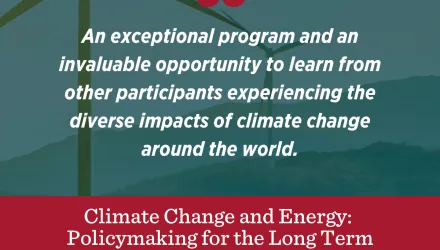Will the Internet Become a Crucial Tool in the Middle East Peace Struggle?
by Dorothy Shore Zinberg
When the Israelis were encountering Hezbollah as they pulled out of southern Lebanon, a much less visible but more heartening engagement was taking place at Ben Gurion University in the Negev Desert. More than 100 computer and political scientists,venture capitalists, philanthropists, and chief executive officers of what seemed like an infinitude of dot-com start-up companies gathered to inaugurate the Burda Center for Innovative Communication.
The agenda of the Cool People in a Hot Desert conference was primarily business: How do universities create the human capital that will provide the brains for new businesses in this digital gold rush and how can universities serve as incubators for new Internet companies?
These questions are being fiercely debated at universities around the world as they struggle to maintain their autonomy while also becoming more like corporations and a lot less like ivory towers with each new business venture they spawn.
Under the leadership of Avishay Braverman, a Stanford graduate with experience at the World Bank, Ben Gurion University enrollment has tripled to 15,000 students in the past eight years. He expects that the projected biotech and computer-based industries will add a further 10,000 employees to the community by the year 2007.
But Braverman acknowledges that without slowing the galloping income gap in the country and infusing the new growth with a moral dimension, the latter expressed in the university's commitment to educating Bedouins, Ethiopians, and eventually Arab students, the plans will truly rest on sand.
This vision is shared by the donor behind the new media center, Hubert Burda, a German publisher with a seemingly insatiable appetite for new ideas and knowledge and an infectious faith that increased contact among people will yield greater understanding and, in the long run, peace in the Middle East.
Even though I know that Germany and Israel have had close intellectual ties and business dealings since the end of the World War II, there was nevertheless something startling when Shimon Peres, who is likely to be named president of Israel, opened the conference by stating: It is better to teach children how to imagine, not how to remember. The past is irrelevant.
In a country where until recently it has been mandatory for Israeli children to visit the Holocaust Museum, this is a startling pronouncement and probably not quite what he meant. But like Burda, Peres was implying that the speed of globalization, brought about in part by the Internet, was forcing the world into ever closer contact that demanded a new vision of coexistence. It is the potential of that Internet contact to foster coexistence that was illuminated by a young Israeli scholar, Michael Dahan, who leads two projects.
One is an e-mail project that links political science students at Cairo University and Hebrew University. In the two months of its existence, it has generated more than 1,000 e-mails on subjects that range from anti-Semitism and the Holocaust to Zionism and Arab nationalism - the first exchange of its kind. Both Dahan and his Egyptian colleague believe that attitudes on both sides are changing for the better. Now there is a move to bring the Israeli students to meet their correspondents in Cairo - if funding can be found.
The second, more ambitious project is employing information technology and telecommunications to create the Middle East Virtual Community of Academics and Intellectuals, which seeks to provide neutral ground for the exchange of ideas among intellectuals and to explore ways in which to break down the resistance to normalization with Israel.
The virtual community is planning a virtual conference, People across Borders, in August and has already received papers from the Gulf and Iran. The steering committee includes individuals from seven countries in the region - no small accomplishment.
Can the Internet become a crucial tool in the Middle East struggle for peace? It is too early to tell. But if during the sustained anti-German antipathy of World War II, futurologists had said to me: "Some day you will find yourself in the desert among the ruins of a 7th-century Nabatean city. There, under an almost full moon, a chorus of Ethiopean teenagers who identify themselves as descendants of Abraham and, consequently, as Jews, will sing to you and a group with whom you are traveling. They will elicit such strong shared emotions that a German publisher and an Israeli university president clad in Arab kaftans will rise spontaneously and with clasped hands entice 100 people, one-third of whom are Germans, into dancing on the sands," I would have assured the soothsayers that they would come back to their senses.
But this was no fantasy. It was real, as are the Israeli-German friendships and collaborations that are contributing to the rapid growth of Ben Gurion University. Now the challenge is how to amplify the use of these powerful new technologies, not simply to grow more dot-coms but to hasten the day when that scene in the desert will be repeated with an equal number of Arabs from the entire Middle East.
That is a lot to expect, even from the Internet and the dot-coms, but the potential is there.
This article also appeared under the title "Vision of Peace in a Desert" in the June 16, 2000 issue of The London Times Higher Education Supplement.
Zinberg, Dorothy. “Will the Internet Become a Crucial Tool in the Middle East Peace Struggle?.” The Boston Globe, July 1, 2000





